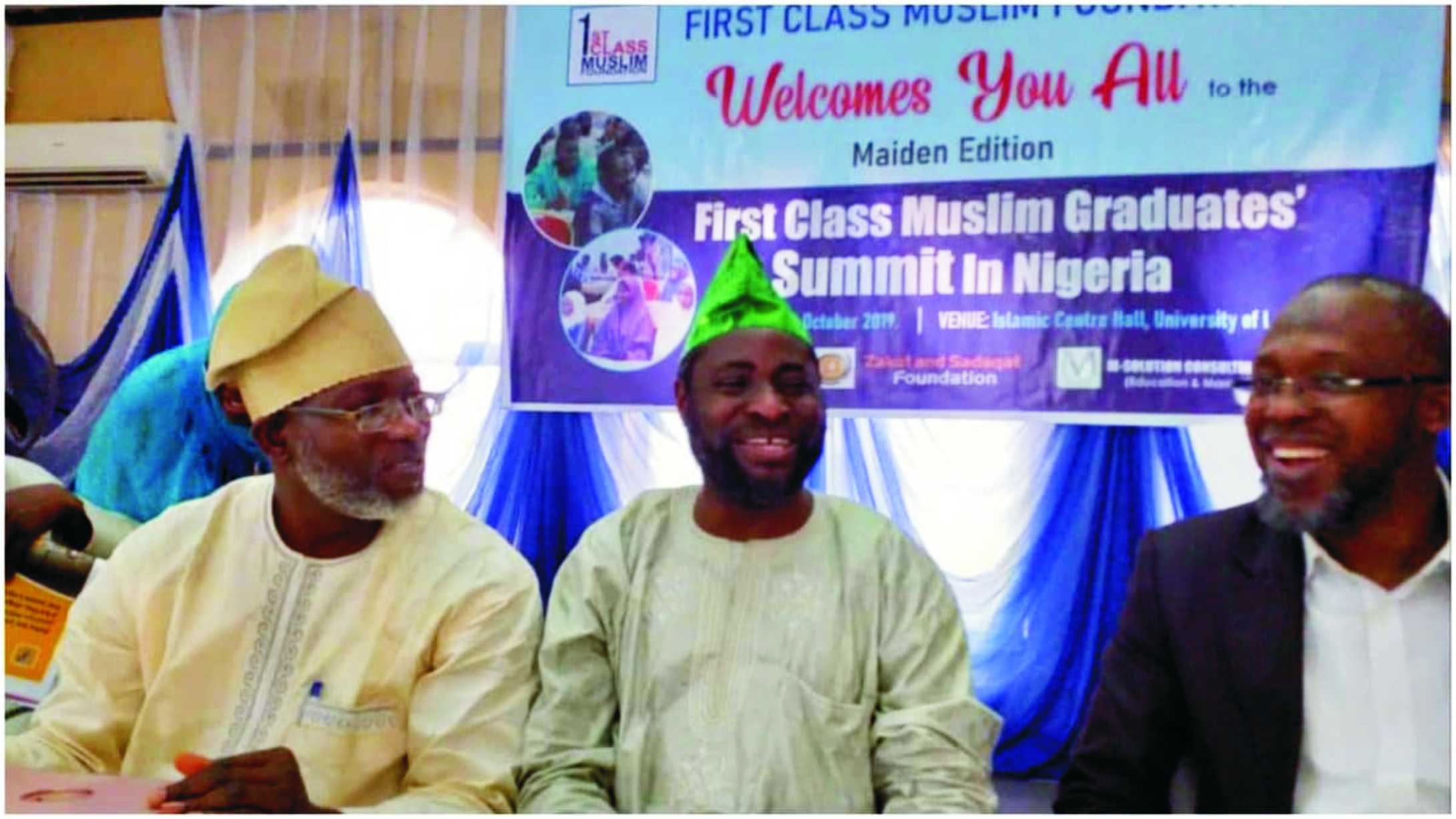Education
Don Decries Lack Of Jobs For First Class Graduates

The Pro-Chancellor and Dean of the College of Business, Law and Social Sciences at the University of Derby, United Kingdom Prof. Kamil Zakariyya’ Omoteso, has said lack of employability and entrepreneurship skills are among the major reasons many first class graduates would not secure jobs after graduation.
Omoteso made the disclosure at the 2019 edition of First Class Muslim Graduates’ Summit held at the Islamic Centre of the University of Lagos, with the theme, “Pursuing Your Goal.” The Tide reports that over 79 first class graduates from different universities across the country attended the summit.
Omoteso while speaking, revealed that, at the end of every academic calendar, several Nigerian institutions, from government to privately-run universities produced hundreds of first class graduates but many of them found it difficult to secure jobs years after graduation.
He said many of the first class products were not equipped with necessary tools that will make them succeed after graduation.
“Some of the tools include short internship/placement during summer breaks and volunteering in relevant organisations.
“These include supporting students on CV writing, crafting of their personal statements, preparing students for interviews/assessment centre activities, etc, providing research assistantship opportunities for outstanding students. Institutions should also liaise with employers for life projects to which students can contribute, with dual-supervision.
“One of the key elements we are incorporating into academics in the West is graduate employability.
“Employability and entrepreneurship skills are really important for students before they graduated from Universities. Like someone asked a question that they have got the degree but because they have not got the experience, it’s becoming difficult for them to secure jobs.
“This isn’t going to be so if the University incorporates employability and entrepreneurship skills in its academic curriculum. There would be opportunity for volunteering whereby organisations would liaise with the University to take students for internship for three to six months, either before or immediately after their graduation. The experience they have gathered during the period would add to their CVs. It has to be a collaboration between ‘The Town and the Gown’ if you see what I mean. That would help them a lot,” he said.
Omoteso recalled that in his days at the University of Lagos, students who graduated with first class were retained and offered jobs as Graduate Assistants, adding that, “they will use the opportunity to build on their profile and determine whe-ther to stay in academia.”
He called on the government and the Nigerian universities to be serious about the employability of students, adding that they were talents that shouldn’t be wasting away.
Education
*SSS 3 Students Groan Over Difficulties in WAEC Capturing in Rivers*

Education
NCDMB commission Simulation Lab in Bayelsa University

Education
Bonny Federal poly appoints Deans, HOD’s ,Directors

-

 News5 days ago
News5 days agoAmend Constitution To Accommodate State Police, Tinubu Tells Senators
-

 Politics5 days ago
Politics5 days agoSenate Urges Tinubu To Sack CAC Boss
-
Business5 days ago
Crisis Response: EU-project Delivers New Vet. Clinic To Katsina Govt.
-
Business5 days ago
President Tinubu Approves Extension Ban On Raw Shea Nut Export
-

 News5 days ago
News5 days agoDisu Takes Over As New IGP …Declares Total War On Corruption, Impunity
-
Business5 days ago
Fidelity Bank To Empower Women With Sustainable Entrepreneurship Skills, HAP2.0
-
Business5 days ago
President Tinubu Extends Raw Shea Nuts Export Ban To 2027
-
Sports5 days ago
NDG: Rivers Coach Appeal To NDDC In Talent Discovery

